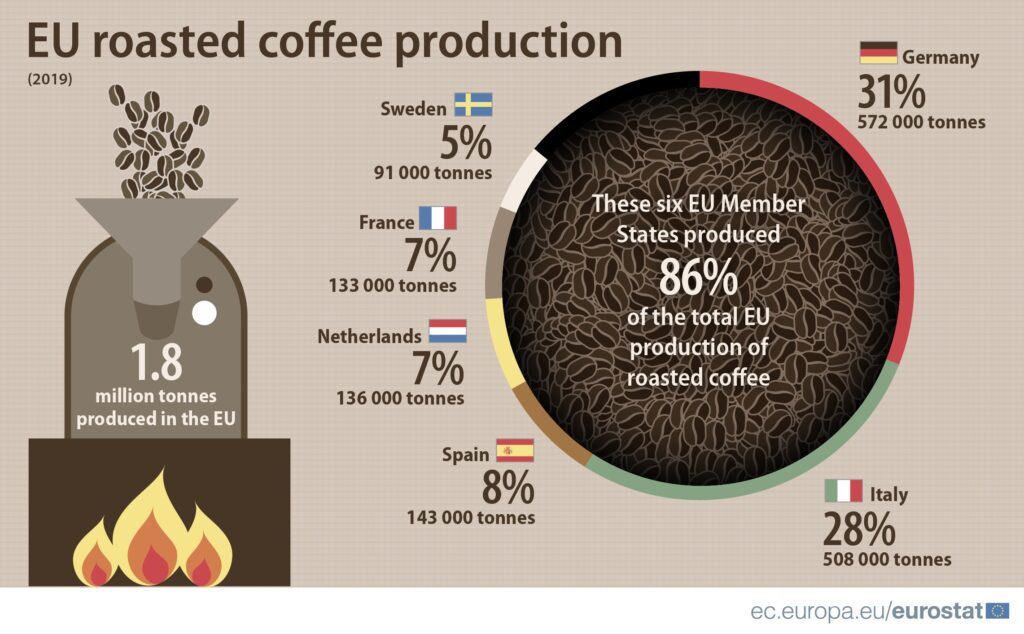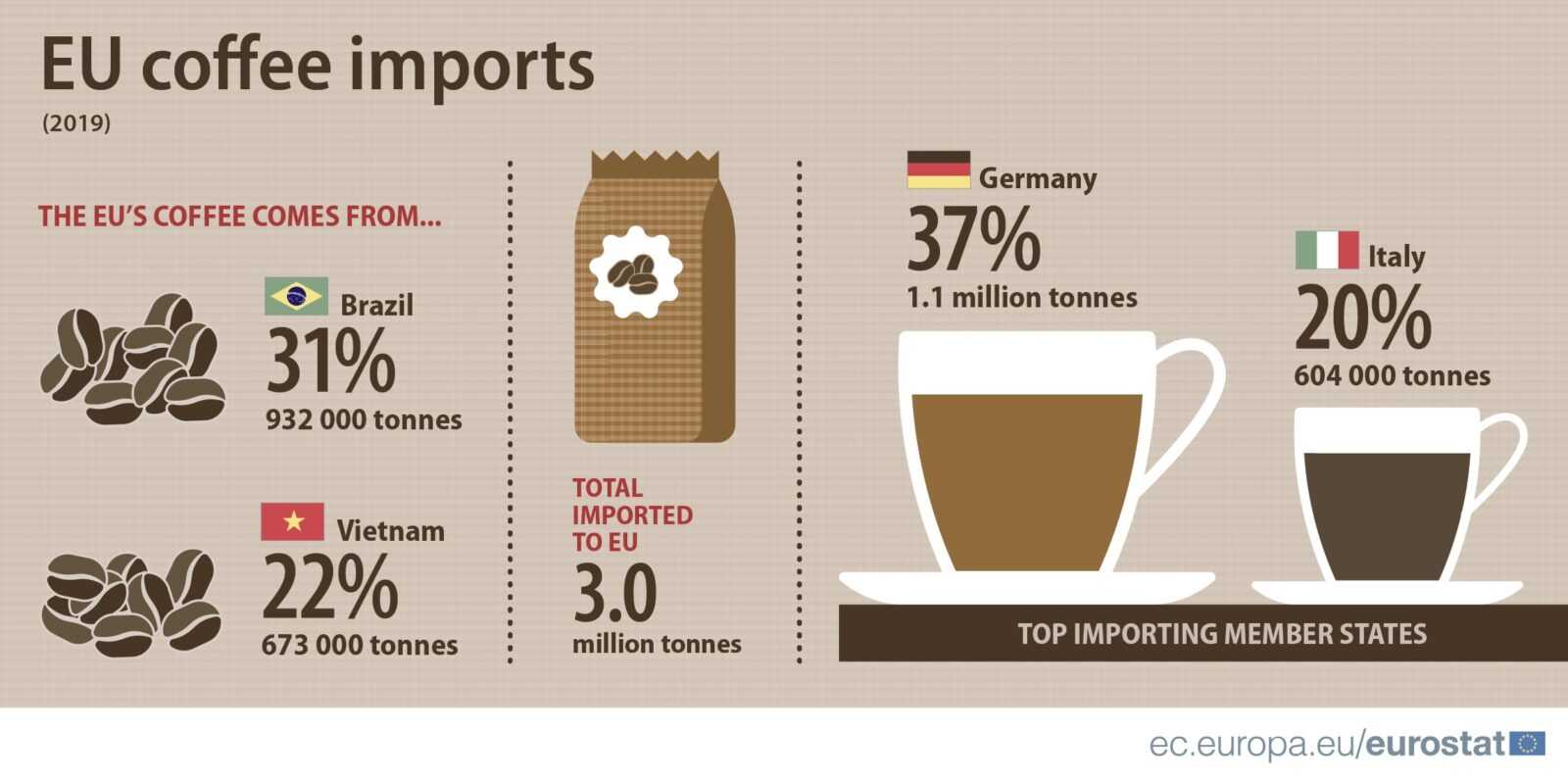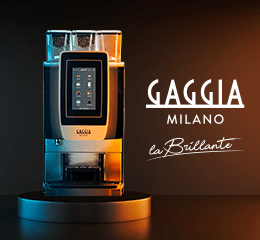MILAN – In 2019, the EU imported 3.0 million tonnes of coffee, or 50 million bags, 14% more than 10 years ago, reports Eurostat. These imports were worth €7.5 billion.
Most of the coffee imported in 2019 from non-EU countries came from two countries: Brazil (932 000 tonnes imported to the EU, or 31% of the total extra-EU imports) and Vietnam (673 000 tonnes, 22%).
They were followed by Honduras (221 000 tonnes, 7%), Colombia (166 000 tonnes, 6%), Uganda (145 000 tonnes, 5%), India (137 000 tonnes, 5%), Peru (113 000 tonnes, 4%), Ethiopia and Switzerland (both 80 000 tonnes, 3%) as well as Indonesia (77 000 tonnes, 3%).
These imports were mainly into Germany (with 1.1 million tonnes imported, or 37% of the total extra-EU imports) and Italy (604 000 tonnes, 20%), ahead of Belgium (303 000 tonnes, 10%), Spain (273 000 tonnes, 9%) and France (236 000 tonnes, 8%).
Germany and Italy, top coffee producers in the EU
In 2019, over 1.8 million tonnes of coffee were produced in the EU, 3% more than 10 years ago. The EU’s coffee production was worth around €10 billion, and it was equivalent to around 4.1 kilograms per inhabitant in 2019.
Among the EU Member States, Germany produced the most roasted coffee in 2019 (572 000 tonnes, or 31% of the total EU production), followed by Italy (508 000 tonnes, 28%), ahead of Spain (143 000 tonnes, 8%), the Netherlands (136 000 tonnes, 7%), France (133 000 tonnes, 7%), and Sweden (91 000 tonnes, 5%).
 In 2019, these six EU Member States produced 86% of the total EU production of roasted coffee.
In 2019, these six EU Member States produced 86% of the total EU production of roasted coffee.
Note: The European Union (EU) includes 27 EU Member States. The United Kingdom left the European Union on 31 January 2020.














